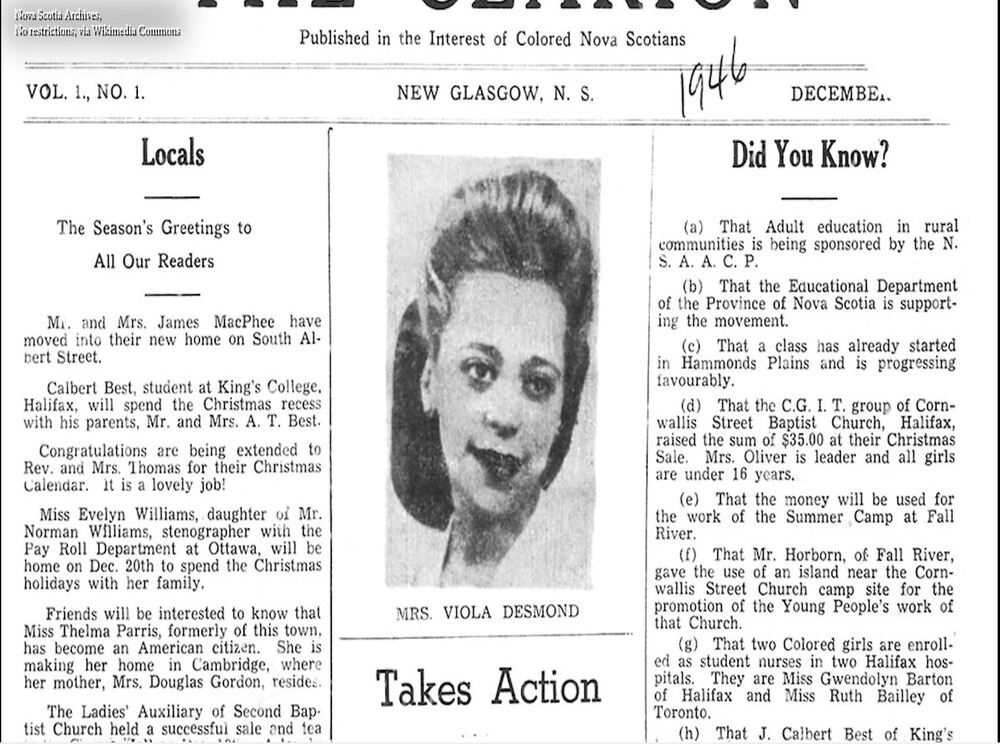
Civil Rights in Nova Scotia: The Story of Viola Desmond
Activists in Nova Scotia have paved the way for advancements in civil rights for all Canadians. The story of Viola Desmond (1914–1965), a beautician and business-owner from Halifax, is one notable example.
On November 8, 1946, Desmond was travelling from Halifax to Sydney, Cape Breton, to deliver some of her beauty products, when car trouble forced her to spend the night in New Glasgow. While her car was being repaired, Viola decided to see a movie at the Roseland Theatre. The events that followed challenged racial segregation in Canada.
Desmond was unaware of the theatre’s racist policy, which restricted Black patrons to seats in the balcony only. After purchasing her ticket, she went to sit on the main floor, where the usher told her that her ticket was for the balcony.
Thinking she had made a mistake, Desmond returned to the cashier to exchange her ticket. The cashier replied, “I’m not permitted to sell downstairs tickets to you people.” As soon as she realized that she was being denied seating based on her skin colour, Desmond walked back inside and took a seat on the main floor. The theatre manager confronted her and, when she didn’t move, he called the police.
Desmond was arrested and spent the night in jail. In court the next day, she was not tried with sitting in the “whites only” section, but rather of defrauding the government of one cent: the difference between the $0.03 sales tax on a main-floor ticket, and the $0.02 tax on a balcony ticket. She was fined $26.
Assisted by the Nova Scotia Association for the Advancement of Coloured People, Desmond hired a lawyer and took her case to the Supreme Court of Nova Scotia. The judges ruled against her, and her conviction was upheld. Championed by her sister, Wanda Robson, Desmond would receive a posthumous official pardon from the Nova Scotia government, on April 15, 2010. The pardon was granted by then-Lieutenant Governor of Nova Scotia Mayann Francis, who was the first African Nova Scotian and only the second Black person in Canada to hold this office. Viola Desmond is now on this country’s $10 bill: the first Canadian woman to appear on a regularly circulating bank note.
This topic explores the story of Viola Desmond through objects and the oral history of her sister, Wanda Robson. Please click on the objects below to learn more.


